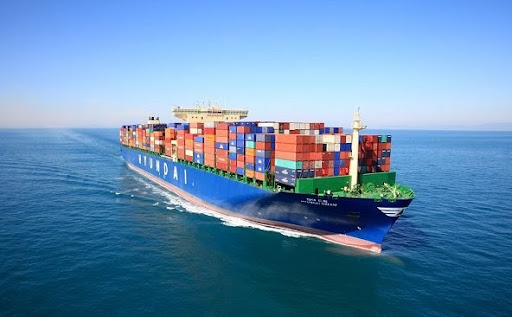Importing Your Goods via Ocean Freight

1. To what extent does it take to get my load?
Numerous components can impact shipping times: for instance, the beginning and goal of the shipment, or in case you’re shipping a not as much as compartment load (LCL), and so on.
Notwithstanding, don’t anticipate that your products should be in your grasp inside 14 days. When your merchandise shows up at port, they should be emptied from the vessel, become accessible for pickup and afterward be conveyed to your entryway (that is accepting they previously cleared traditions).
This is because of the additional means of merging your shipment with freight from different shippers at the inception and afterward consolidating it at the goal. These means happen at a specific distribution center called a holder cargo station (CFS).
2. For what reason do rates change?
There are a couple of reasons the shipping paces of a cargo forwarder can change:
GRI: This represents General Rate Increase, which, basically, is when sea bearers raise rates in a specific exchange path. While GRIs can occur consistently, you can commonly depend on one occurring on May first which denotes the start of another year “contract season” among shippers and bearers.
Supply/Demand: Ocean shipping rates increase during specific seasons, particularly when interest for space is high. One of these occasions is alluded to as the “top season.” The customary pinnacle season generally ranges July through October and agrees with the surge of freight in front of the Christmas shopping season. Since retailers are hoping to have items on racks for Black Friday, shipping rates will in general increment in the previous months.
Numerous nations in Asia screen manufacturing plants for about fourteen days or longer to celebrate. Accordingly, the weeks preceding the shutdown see a flood in load and rates. The Lunar New Year start date shifts every year except happens between late January and February.
Cost of Oil: Just like the expense of gas for our vehicles, a shipper’s rate may increase or decline because of the cost of oil. Changes are reflected in the fortification change factor (BAF). Shelter fuel is the term for the fuel oil utilized in vessels.
The most ideal approach to remain over rate changes is to work with a solid worldwide cargo forwarder, who can keep you educated on economic situations.
3. Do You need protection?
Short answer: It’s constantly suggested.
Long answer: While you needn’t bother with marine payload protection and aren’t required to get it, having it is typically a wise speculation. Similarly likewise with home or vehicle protection, you’re shielding yourself from potential harms or misfortunes that may happen. In particular, marine payload protection can cover harm, misfortune, robbery, non-conveyance, and so forth.
One thing that makes marine protection not quite the same as your home or vehicle protection is an idea called “General Average.” A general normal situation happens when some load is willfully yielded with an end goal to spare the journey. This could come through casting off certain holders to settle the boat in an extreme tempest. General Average expresses that all load proprietors are capable and will partake in the misfortune (regardless of whether your freight wasn’t really lost). Marine protection can ensure you against a general normal circumstance and dodge the extra costs with recovering your freight.
4. Wouldn’t it be simpler to permit my supplier to deal with the shipment?
Truly and no. While it might be “simpler” by giving your e wallet duty, there are numerous drawbacks. One issue is consistent. For instance, who will document your Importer Security Filing (ISF)? At last, the ISF importer will be answerable for any slip-ups or exchanged harm punishments for rebelliousness.
Another issue is control. In the event that your supplier is dealing with their shipments, that implies they’re working with their cargo forwarder to deal with the travel procedure. That cargo forwarder may not furnish you with the capacity to follow your shipments, or even give you reports on your payload. Correspondence issues with abroad forwarders can make planning conveyances to your stockroom hard to organize and prompt pointless demurrage charges.
Imagine a scenario where you have more than one supplier. Monitoring each unique shipment can be a calculated bad dream all things considered as well.
From the outset, letting the supplier handle your shipment may sound engaging. Nonetheless, as your business develops, it begins to turn out to be to a greater degree a weight than a benefit. That is the reason specialists prescribe that you control the shipping procedure by utilizing your own worldwide cargo forwarder. They can help reveal increasingly effective methods for shipping, for example, building solidifications from numerous suppliers and offer instruments to follow each progression of the shipping procedure.
Look at different advantages and disadvantages of letting your supplier handle shipments here.
5. Would it be advisable for me to transport through air or sea?
A superior inquiry would be: How before long do you need your load? In the event that you need it at the earliest opportunity, airship cargo is a far quicker shipping alternative than sea cargo. Be that as it may, that speed accompanies an expense — shipping rates for airship cargo are fundamentally higher. In most cases, sea cargo will be the most practical mode.
There are exemptions, obviously: If your payload is under 100 pounds, shipping by means of air is frequently more financially savvy. Additionally, if your merchandise are short-lived or delicate (e.g., blossoms or medication), airship cargo is frequently the best alternative. Also, high-esteem product might be more qualified for airship cargo in view of worries over harm, burglary, or the time estimation of cash.
Ecological effect might be another factor to consider. The carbon impression of shipping by means of airship cargo is monstrous contrasted with sea.
Before you begin shipping by means of air, discover everything your cargo forwarder needs you to think about airship cargo.
6. What number of beds fit in a compartment?
Contingent upon the bed size, there are about 9 to 11 bed spaces in a 20′ compartment and approximately 21 to 25 bed spaces in a 40′ holder.
To get familiar with fitting beds in a compartment, look at our graph on holder measurements.
7. Is there a weight limit?
Truly. There are diverse weight limits relying upon how you are shipping. For instance, sea cargo typically has less weight limitations than local cargo. That is on the grounds that trucks can indeed convey a limited amount of a lot of weight; also, state and government laws administer how much a truck can carry on U.S. streets. The weight limitations for trucks can run from 38,000 pounds to 44,000 pounds, contingent upon holder size and other state limitations. Tri-pivot body are utilized for substantial burdens.
8. For what reason do I have to round out an intensity of lawyer (POA)?
There are two fundamental reasons a POA for import shipments is required. In the event that you employ a traditions agent, they have to have the power to direct Customs business for your sake.
Likewise, you will require a POA if your traditions intermediary or global cargo forwarder presents your Importer Security Filing (ISF) to U.S. Customs. The ISF must be submitted 24 hours before being stacked onto a U.S.- bound vessel, which gives time for customs to screen your load for any wellbeing and security concerns. On the off chance that the ISF doesn’t find a workable pace time and precisely, you can confront charges and punishments.
9. When would it be a good idea for me to deliver FCL versus LCL?
The bigger your shipment is, the almost certain you’ll need to dispatch full holder load (FCL) to help lessen landed cost, potential taking care of harm, and get your freight quicker.
In the event that your shipment is under 15 cubic meters (CBM), it will be more financially savvy to move it as not as much as holder load (LCL) freight.
Your worldwide cargo forwarder can help examine showcase rates for your shipment to decide the breakeven point for shipping not as much as compartment load (LCL) or FCL.
10. For what reason are the business receipt and pressing rundown important?
They’re required by customs. Separating it, be that as it may, these two things are important for various reasons:
Business receipt: Like different kinds of solicitations, the business receipt depicts the exchange occurring between the exporter (your supplier) and importer (you). It records your merchandise and the value Supplier Payments. Subtleties on the business receipt will be utilized to decide the obligations and duties relevant to your shipment.














